There is no better collection of contemporary art than the one at New York’s Museum of Modern Art (aka MoMA). The names alone make up a supernova constellation of artistic stars of the 20th and 21st centuries: Warhol, Van Gogh, Pollock, Picasso, Monet, and Dali, to name just a few.
In addition to its renowned permanent collection, MoMA presents special exhibitions (that are often among the hottest tickets in town), and special events.
With six floors of galleries showcasing thousands of artworks, it can be challenging to navigate the large museum and find key works. But fear not: we’ve compiled a list of some of MoMA’s most significant artworks.
Here are our picks for the must-see works at MoMa.
Insider’s Tip: Head straight up to the 5th floor and progress through the galleries in numerical order. This allows you to move chronologically through the development of modern art.
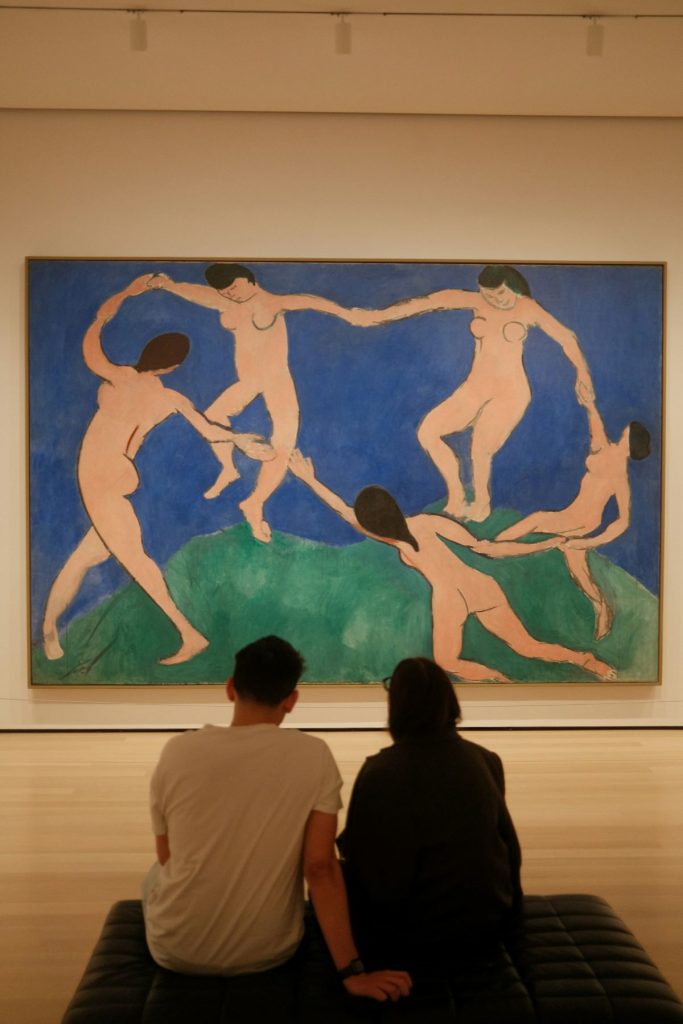
Fifth floor: The Impressionists and beyond
- Paul Cezanne – The Bather: Gallery 1 – One of Cezanne’s most evocative figure paintings, the introspective young male seems to be stepping out of the bare landscape. The work combines his interest in artistic tradition and modernity. In the same gallery, look for the artist’s Self-Portrait in a Straw Hat.
- Paul Gauguin – The Seed of the Areoi: Gallery 1 – One of Gauguin’s finest paintings from his excursion to Tahiti, depicting a primitive paradise free of the corruption of modern Europe. As you’ll see, his use of bright, flat colors influenced artists to follow.
- Vincent Van Gogh – The Starry Night: Gallery 1 – Undoubtedly one of the stars of the museum’s vast collection. It depicts a turbulent sky over Saint Rémy, where Van Gogh was confined to a mental asylum during his final days. The roiling energy of the sky, intense color and exploding stars are thought to evoke Van Gogh’s emotional state. He once said, “Looking at the stars always makes me dream.”
- Pablo Picasso – Les Demoiselles d’Avignon: Gallery 2 – This work, a stark break from traditional composition and perspective, features five naked prostitutes in a brothel. The women are composed of flat, splintered planes with faces inspired by Spanish sculpture and African masks. Picasso described this as his “first exorcism painting.” It is also the first of many Picasso works in the collection, which allows one to follow the artist’s development through diverse periods, styles, and media.
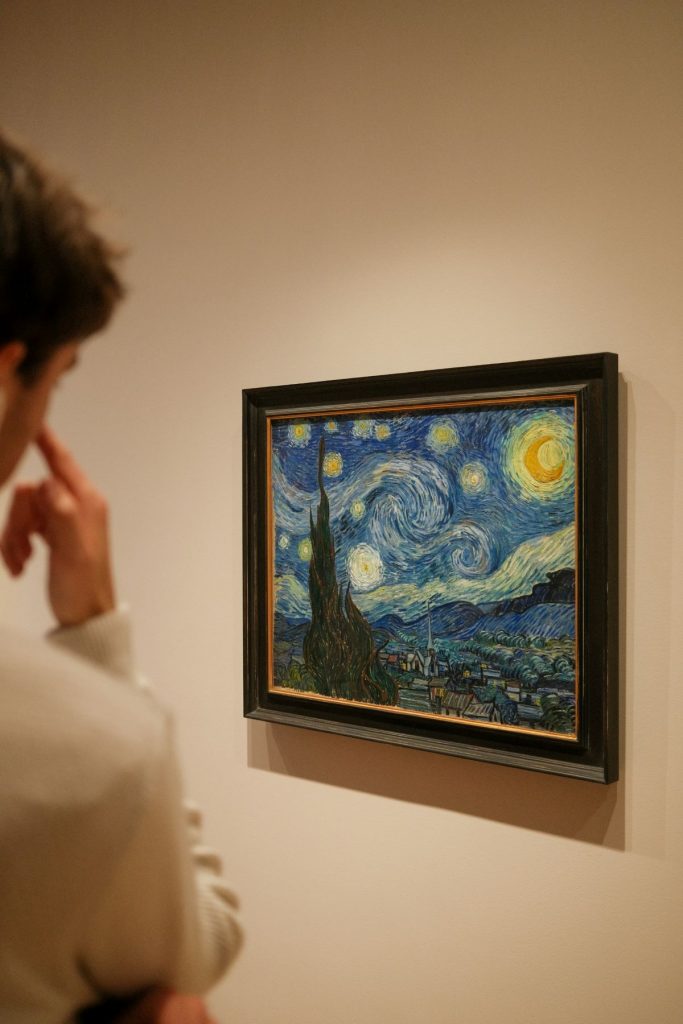
- Marc Chagall – I and the Village: Gallery 3 – This painting evokes Chagall’s boyhood Russian village, where peasants and animals lived in harmony. The flowering sprig at the center symbolizes the tree of life and the work’s angles and lines are inspired by Cubism.
- Henri Matisse – Dance (I): Gallery 6 – Matisse said, dance means “life and rhythm,” and he captures joy and energy in this work presenting mythical dancers in a timeless landscape. This is a compositional study for his Dance (II), which hangs in the Hermitage Museum in Saint Petersburg.
- Monet – Water Lilies: Gallery 9 – This long piece is filled with the water, lilies, light, and sky of Monet’s Japanese-style pond in his garden in Giverny. Monet wanted these large-scale canvases to encompass the viewer. There is another large Water Lilies canvas on the opposite wall of the gallery.
- Salvador Dali – The Persistence of Memory: Gallery 12 – Dali’s quintessential work of Surrealism, the theme is time. A bleak landscape contains melting watches, ants (symbolizing decay), and a grotesque fleshy object in the center that bears a troubling resemblance to Dali’s own face in profile.
- Andrew Wyeth – Christina’s World, Lobby – Wyeth portrays his neighbor who, stricken with polio and unable to walk, is crawling through a field to pick blueberries. Wyeth said he wanted to present “her extraordinary conquest of a life which most people would consider hopeless.” The depiction of the arid landscape and rural buildings is done with great detail.
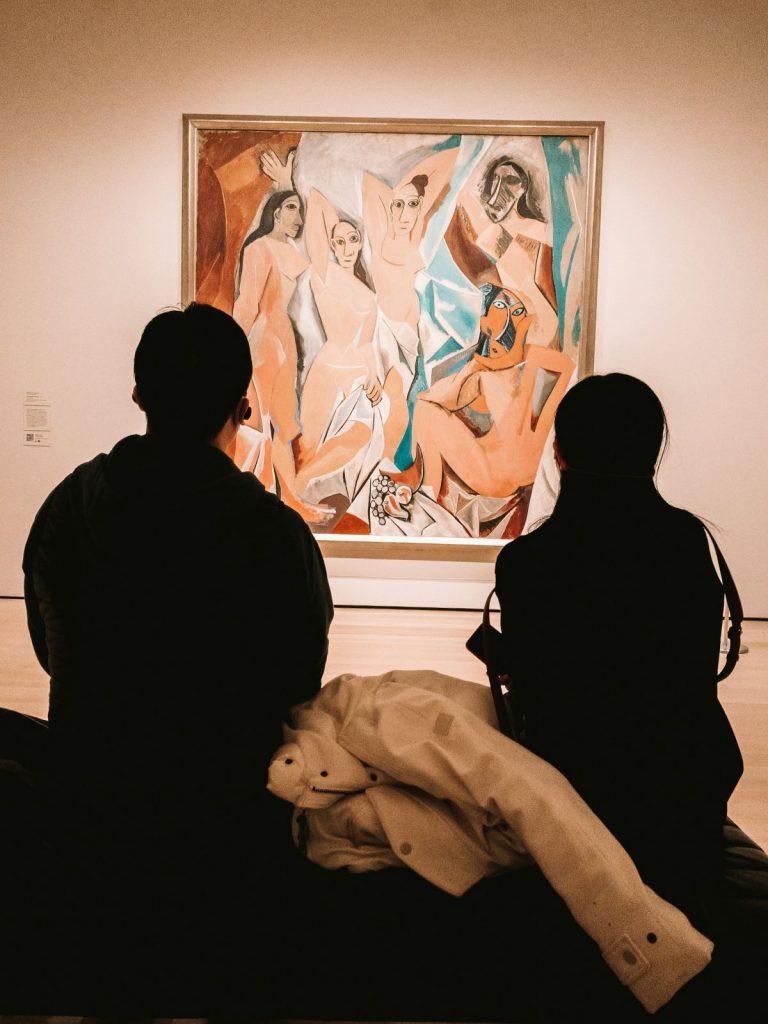
Insider’s tip: Headed to NYC and nervous about using its subway? Don’t be! With a few good tips in your pocket from our Guide to Using the NYC Subway, you’ll be riding like a local in no time at all.
Fourth floor: Mid-century masters and beyond
- Jackson Pollock – One, Number 31, 1950, Gallery 16 – Considered a masterpiece of the “drip” technique; this is among the largest of Pollock’s paintings. The work conveys great energy with an intricate web of tans, blues, and grays lashed through black and white.
- Andy Warhol – Campbell’s Soup Cans, Gallery 19 – A seminal work of Pop Art. Believing art should be for everyone, Warhol used familiar images in his works—in this case the thirty-two varieties of soup offered by Campbell’s, a staple of the American diet at the time.
- Roy Lichtenstein – Drowning Girl, Gallery 19 – Like many of Lichtenstein’s works, this piece is inspired by an image from a comic book. He has focused on the comics’ melodramatic content, and even manually painted the dots used in the printing of comics.
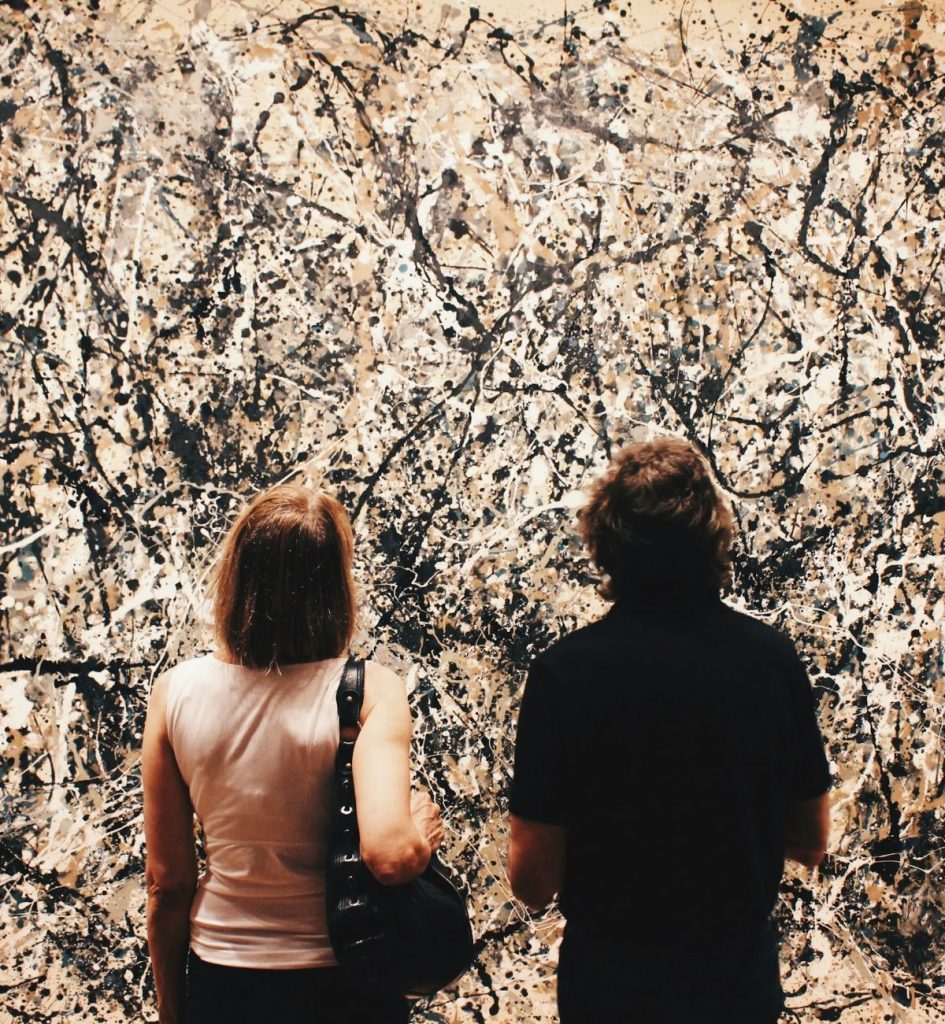
How to visit the MoMA
The Museum of Modern Art is located at 11 West 53rd Street, between 5th & 6th Avenues.
Subway: E or M train to 53rd Street & Fifth Avenue, or B, D, or F train to 47-50 Street Rockefeller Center.
Hours: MoMA is open 10:30am – 5:30pm, seven days a week (closed Thanksgiving and Christmas).
Admission: Adult tickets are normal price. However, seniors and students get discounted tickets, and children under 16 enter for free. Tickets can be purchased online in advance.
Insider’s Tips:
- MoMA offers free entry for New York City residents once a week on select days. Be sure to check out their website for specifics. Tickets for these hours are not available in advance.
- MoMA is one of New York’s most popular attractions. Ticket lines can be long and galleries crowded during popular viewing times (generally mornings, weekends, and holidays). The free Friday evenings are particularly crowded and chaotic. If possible, plan your visit outside these busy times for a better experience of the works and venue.
For more information about MoMA’s exhibitions, events and policies, see their website. They also offer a free mobile app with photos, text, and audio segments on the collection.
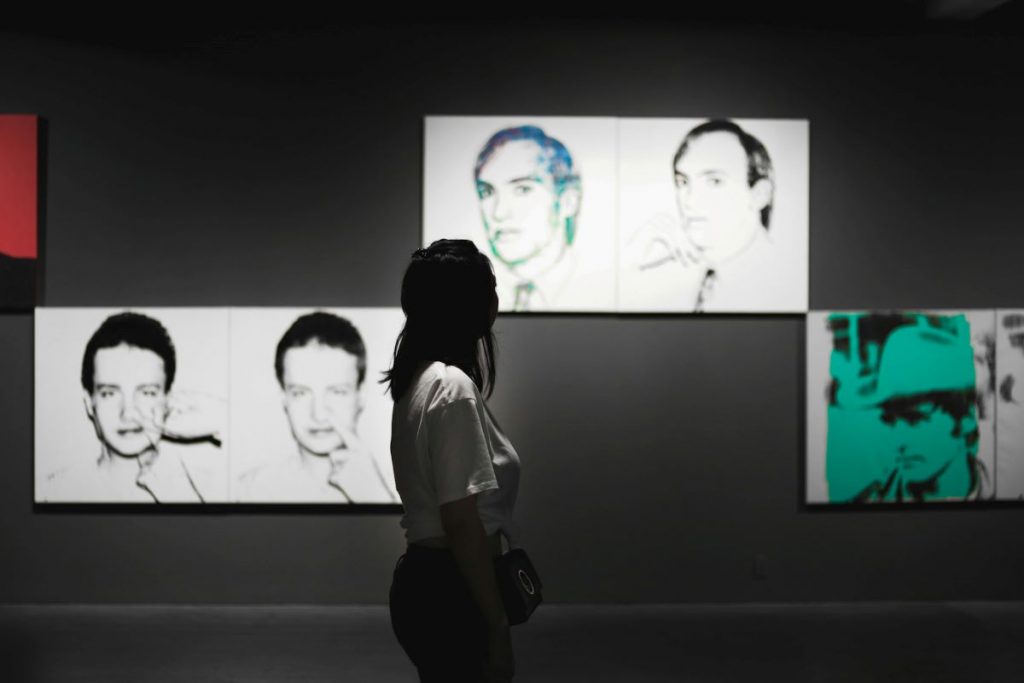
+ Other museums in New York
Interested in seeing more art around New York? Don’t miss:
- Lesser known NYC museums that are worth the trek like the Isamu Noguchi Museum created by Japanese-American artist, Isamu Noguchi.
- Or maybe ancient classics to modern creations are more your style? Then be sure to visit The Met.
Wherever you choose to venture, New York has the perfect museum for every art lover.
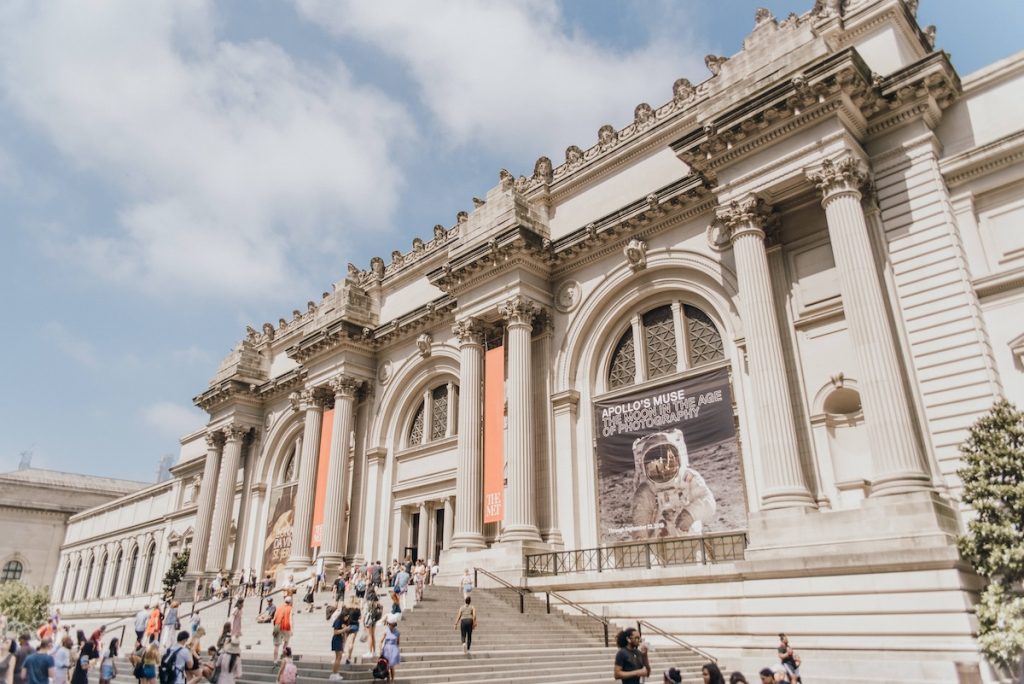
Update Notice: This post was updated on April 15, 2024.
Love museums? Then keep exploring and make your way to The Metropolitan Museum of Art. Just like with the MoMA’s modern art treasures, you’ll find a world of wonders awaiting you at the Met. Join us for the Met Express: Highlights of the Metropolitan Museum of Art or Meet the Met: Extended Metropolitan Museum of Art Tour.



